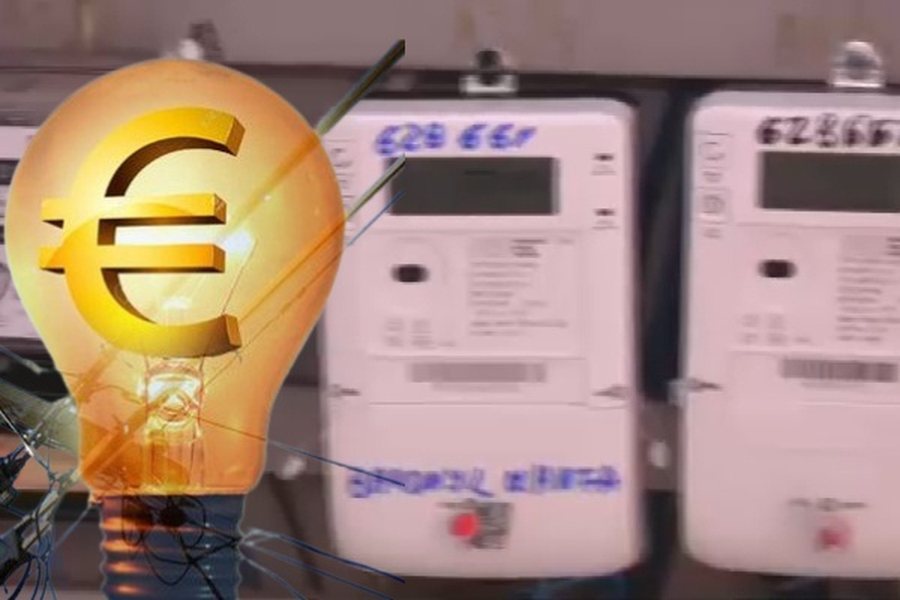
Starting next month, electricity in Kosovo could become 15 percent more expensive. But the chain of price increases would not stop there. Businesses, especially manufacturers, would face increased operating costs, forcing them to raise the prices of products and services.
The Energy Regulatory Office (ERO) in Kosovo warned that, starting in April, electricity bills could increase by 15 percent.
Currently, for consumers who consume up to 800 kilowatt hours per month, the price of electricity during the day is 7.79 cents per kilowatt. In the event of a 15% increase, they would pay 8.96 cents.
ERO reviews and sets electricity tariffs annually and they are in effect from April 1 to March 31 of the following year.
According to this institution, the increase in tariffs this year is necessary due to the decrease in energy production, increased consumption, and heavy dependence on high-priced imports.
Current energy prices
In April last year, ERO reduced the price of energy for commercial and industrial customers by 3%. However, a year earlier, in 2023, tariffs increased by 15% for all categories of customers.
Currently, for consumers who consume up to 800 kilowatts per month, the price of electricity during the day is 7.79 cents per kilowatt.
For those who consume more than 800 kilowatts, the portion above this is calculated at a price of 14.45 cents.
Meanwhile, from 10:00 PM to 7:00 AM, the price per kilowatt is 3.34 cents for those who spend up to 800 kilowatts and 6.81 cents for those who spend more.
Kosovo cannot provide the necessary energy for its over 1.6 million inhabitants with production from the Kosovo Energy Corporation (KEK) alone.
One of the reasons is the decades-old age of the "Kosova A" and "Kosova B" power plants.
There is also production through renewable sources, but in smaller quantities.
Insufficient production means that a significant portion of supply is secured through imports, which are expensive.
On March 26, the price of electricity on the Hungarian HUPX stock exchange, from where Kosovo imports, was 118 euros per megawatt.
Impact on businesses and price increases
Agim Shahini, president of the Kosovo Business Alliance, says that the increase in the price of electricity will increase the operating costs of businesses, especially manufacturing ones.
For example, a company that has so far paid 1,000 euros per month for energy will pay 1,150 euros after the price increase, according to him.
Shahini says this will force businesses to increase the prices of their products and services, making them less competitive in the market.
Furthermore, he says, these businesses may also cut jobs to cover the additional costs.
"This increase will affect the prices of essential products, such as bread, milk, oil, juices and various services. Businesses are not the main culprits for this increase - the main cause remains the increase in energy prices," Shahini tells Radio Free Europe.
Kosovo, in recent years, has faced continuous increases in the prices of products and services.
The escalation began during the COVID-19 pandemic in 2020 and accelerated after Russia began its invasion of Ukraine in 2022.
Gani Durmishi, president of the Association of Milk Producers and Processors in Kosovo, also warns of further increases in product prices.
"... because when electricity becomes more expensive, the price of packaging also rises, the price of milk also rises. And then, when the cost of living increases, workers also demand higher wages," he says.
Radio Free Europe spoke with several citizens at the end of last month, when talk of possible electricity price increases began, and most said: "We don't know how we're going to cope."
New wave of prices in June too?
After the expected increase in electricity prices in April, businesses in Kosovo will face another significant change in two months.
From June 1, companies with more than 50 employees or an annual turnover of over 10 million euros will have the opportunity to choose their energy supplier and enter the open market.
This step is part of the liberalization of the electricity market, but has raised concerns among businessmen and business organizations, who warn of economic disruption and price increases.
In a statement to Radio Free Europe on March 12, Alajdin Fusha, owner of the company "ABI SHPK" in Prizren, said that with the transition to an open market, an increase in product prices will become inevitable.
This is due to the fact that the price per kilowatt cannot be expected to fall below 15 cents, from the approximately 7 cents the company currently pays, according to him.
"It will definitely reflect in the cost of products and services," said Fusha, whose firm operates with 13 companies that offer food products and other services.
This concern has also been raised by the American Chamber of Commerce of Kosovo, the Kosovo Chamber of Commerce, and the Kosovo Business Alliance, which have recommended postponing the implementation of the open energy market, arguing that the country is not yet ready for this change.
ERO, however, has insisted that it has licensed enough companies to supply electricity and has pledged to monitor agreements between businesses and supply companies itself, to avoid possible abuses./ REL (A2 Televizion)











